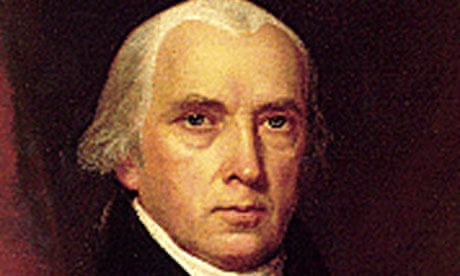Americans argue over the meaning of constitutional amendments the way medieval divines debated the Transfiguration, or whether Mary was tainted with Original Sin. Does the second amendment really mean anyone gets to own a gun? Does the first amendment really erect a "wall" between church and state, or is that a misreading of the founders' intent, based on a letter Thomas Jefferson wrote in 1802? A judge in Oklahoma ignited a new legal and cultural firestorm when he sentenced a drink-driving teenager to 10 years – I'm talking about 10 years of church, not prison.
Tyler Alred was driving with his friend John Luke Dum in the passenger seat during the early hours of the morning of 3 December 2011, when his pickup swerved off the road and hit a tree. Dum was thrown from the truck and killed. Alred had been drinking and was charged with manslaughter. Though he was only 16, he could have got four years to life. But Oklahoma district court judge Mike Norman agreed with the defence lawyer that Alred, who's already a churchgoer, was "worth saving" and decided not to throw the book at Alred – unless you're talking about the Good Book. Norman decreed that Alred must graduate from high school, complete training as a welder, submit to regular drug and alcohol tests, wear a drug and alcohol monitoring bracelet, give speeches against drinking and drug use and park himself on a pew every Sunday. If he doesn't, he could find himself behind bars.
This isn't the first time an American judge has sent a defendant to church instead of prison. In the 1990s, Louisiana judge Thomas P Quirk sentenced hundreds of people convicted of traffic violations or misdemeanours to attend church once a week for a year, insisting that it was a viable alternative to overcrowded jails or fines they could not afford. The state judiciary commission of Louisiana found that Quirk had flouted the constitution. In 2011, the city of Bay Minette, Alabama, gave misdemeanour first-offenders a choice of church or jail time. The city dropped the programme when constitutional experts complained.
Many in Alred's hometown of Muskogee approve of Norman's Jesus-flavoured version of alternative sentencing. One letter to the editor quoted the FBI's J Edgar Hoover: "A child brought up in church seldom is brought up in court." The American Civil Liberties Union, however, is not impressed. It is not trying to overturn Alred's sentence, but has filed a complaint to the council that oversees Oklahoma's judiciary on the grounds that Norman's sentence violates the separation of church and state. Ryan Kiesel, executive director of the ACLU in Oklahoma, says: "Alternative sentencing is something that should be encouraged, but there are many options that don't violate the constitution. A choice of going to prison or to church – that is precisely the type of coercion that the first amendment seeks to prevent."
Most legal scholars agree. Jonathan Turley, of George Washington University, expressed dismay that Oklahoma lawyers let Norman get away with kicking down the essential barrier separating church from state (and not for the first time): "I can understand a judge ignoring the most fundamental principles of our constitution and our profession. What I cannot understand is an entire bar that just stands by silently as he imposes religious-based sentences."
Even conservative lawyers express some discomfort. "The ACLU's complaint has some obvious truth in it," says Matt Staver of Liberty Counsel. "But on the other hand, there may be some other matters that ultimately justify why the judge chose this particular route." Throwing gasoline on to this constitutional conflagration, Judge Norman himself admits he's not confident his decision would survive a legal challenge. Nevertheless, he's unrepentant: "I think Jesus can help anybody."
There's something of the Middle Ages about what Norman did: God will cleanse you of your sin if you say 100 Hail Marys, 50 Our Fathers, or go on a pilgrimage to Jerusalem or Rome. (In 2010, a judge in Ireland sentenced a man charged with public order offences and swearing at a police officer, to climb Croagh Patrick and pray at each of its stations.) On the one hand, most of us can support a second chance for a teenager who did something stupid and got in an accident that killed his friend. Dum's own family saw no reason to throw Alred in prison. Dum's father embraced Alred at the sentencing as the kid apologised and they both sobbed. But do we really want the state to force religion on anyone?
The Rev Bruce Prescott, head of the Oklahoma chapter of Americans United for Separation of Church and State, says: "I'm a minister. I want people to go to church, but it's not helpful for a judge to sentence someone to church. What will the judge do if the young man changes his affiliation in the next few years? Will he be allowed to switch to a mosque or become an atheist? Religion is not a tool of the state, and it's certainly not for the state to use as a tool of rehabilitation."
Alred may be as happy with his church sentence as Brer Rabbit was with being thrown into the briar patch: listening to the longest, dullest, lousiest sermon ever delivered still beats doing time. But this is a violation of human conscience. It's also a violation of one of America's most important founding principles. As James Madison wrote in 1785: "Who does not see that the same authority which can establish Christianity, in exclusion of all other Religions, may establish with the same ease any particular sect of Christians, in exclusion of all other Sects?"
